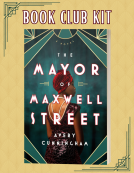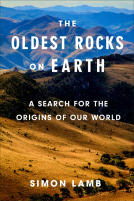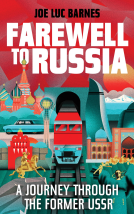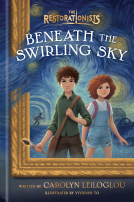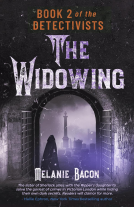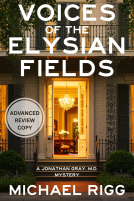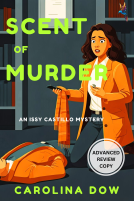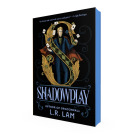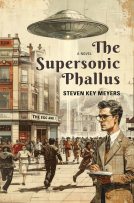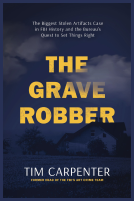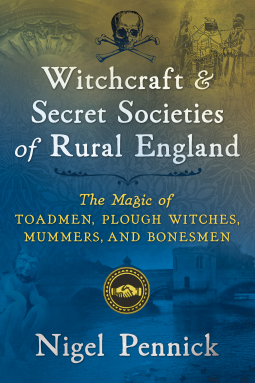
Witchcraft and Secret Societies of Rural England
The Magic of Toadmen, Plough Witches, Mummers, and Bonesmen
by Nigel Pennick
This title was previously available on NetGalley and is now archived.
Send NetGalley books directly to your Kindle or Kindle app
1
To read on a Kindle or Kindle app, please add kindle@netgalley.com as an approved email address to receive files in your Amazon account. Click here for step-by-step instructions.
2
Also find your Kindle email address within your Amazon account, and enter it here.
Pub Date Apr 09 2019 | Archive Date Jan 31 2019
Inner Traditions | Destiny Books
Talking about this book? Use #WitchcraftAndSecretSocietiesOfRuralEngland #NetGalley. More hashtag tips!
Description
• Describes the secret rites, ceremonies, and initiation rituals of guilds and rural fraternities such as the Shoemakers, Horsemen, Toadmen, Mummers, and Bonesmen
• Explains their use of masks, black face, and other disguises to avoid persecution
• Draws not only on scholarly research but also the author’s personal contacts within these still living traditions
Centuries ago the remote, marshy plains of eastern England--the Fens--were drained to create agricultural land. The Fens remained isolated up until the nineteenth century, and it was this very isolation that helped preserve the ancient traditions of this area, traditions ruthlessly eradicated elsewhere in the British Isles. These magical folk traditions also owe their survival to secret rural societies, from craft guilds and trade unions to Morris dancers and village bands.
Exploring the folk customs and magical traditions of guilds and rural fraternities such as the Shoemakers and Horsemen and the secrets guarded by the Free Gardeners, Witches, Toadmen, and Bonesmen, Nigel Pennick shows how the common working people of the Fens belonged to secret societies based on their specific trade. He details the hidden aspects of rural life that most historians ignore--the magical current that flowed through the lives of working people--and describes the secret rites, ceremonies, oaths, and initiation rituals of the guilds and fraternities to which the folk belonged.
Drawing not only on scholarly research but also his personal contacts within these still living traditions, Pennick explains their use of masks, black face, and other disguises to avoid persecution and describes how wise woman healers and witches in rural villages were sought-after for their remedies. He shares the secrets of the toad-bone rite, which gave the Toadman control over animals and members of the opposite sex, and explores the guardian spirits thought to inhabit the Fens, including those of the Wild Hunt.
Providing insight into a world that has largely disappeared, one whose magic still echoes in lore and legend, Pennick shows that the rites, customs, and ceremonies of guilds and rural fraternities connect individuals to a wider community and, through collective action, to the power of Nature and the Cosmos.
Advance Praise
“Nigel Pennick is a true initiate who can demonstrate to the reader how nature and cosmos correlate to each other." Thomas Karlsson, Ph.D., author of "Nightside of the Runes"
"I’ve been referring to Pennick’s books for years when I need a fact or an example of some interesting early magic to cite in my books and blogs.” Barbara Ardinger, Ph.D., author of "Pagan Every Day and Secret Lives"
Available Editions
| EDITION | Other Format |
| ISBN | 9781620557600 |
| PRICE | $16.99 (USD) |
| PAGES | 224 |
Links
Average rating from 35 members
Featured Reviews
 Cindy M, Reviewer
Cindy M, Reviewer
Though a bit too long, I found the examples of old rural England's various fraternal (and a couple of maternal) organizations to be an interesting foray into the bizarre, while providing illumination into the reason why the groups were initially formed. Fascinating historical perceptions and their introduction into English folklore.
 Book Trade Professional 291252
Book Trade Professional 291252
I enjoyed this although it wasn't quite what I was expecting - an academic book rather than a fictional reference. I found I had to dip in and out - this isn't a 'read in one sitting' novel but a structured, dissertation on a fascinating slice of rural England. I think the cover is a little misleading - I thought I was getting something a wee bit lighter but that shows the deftness & creativity of the cover artist so I can't really fault it.
As an academic reference with some insightful and thought-provoking narrative, I certainly recommend it.
3.5 stars. Thank you to NetGalley for the ARC in exchange for an honest review.
An incredibly intricate account, taking the reader through the ages of secret societies and magic in England. Not a quick, captivating read by any stretch but I did find many parts interesting and very thorough. Perfect for referencing the beginnings of Freemasonry and British folklore.
 Christina B, Reviewer
Christina B, Reviewer
Interesting, but sometimes a bit drawn out. But overall, a decent read. I voluntarily read this book via NetGalley in exchange for my honest opinion.
 Emma S, Reviewer
Emma S, Reviewer
This book is certainly different. The authir takes us on an educational journey. I would recommend this book for those wanting to learn more about the history if Witchcraft in England
 catherine h, Reviewer
catherine h, Reviewer
Right up my alley! I love reading about how pagan societies are created and survive. It's just so fascinating. Fits right in with my folklore collection, and Katharine Briggs books! Not an easy read, but well worth the effort.
 Reviewer 450044
Reviewer 450044
I wasn’t sure what to expect with this book. It’s definitely a fascinating, dip in and out book. Loved learning about the secret societies. A heavy reference book but very interesting.
Witchcraft and Secret Societies of Rural England
The Magic of Toadmen, Plough Witches, Mummers, and Bonesmen
by Nigel Pennick
Nigel is a prolific author on multiple subjects. I think his favorite being the occult and Great Britain's history, folklore and customs. Anything to do with the Mercia/East Angela /Northumberland he probably knows about. This also led him into the Anglo Saxon fusion of Nordic customs, ways and writing namely the runes and how they were added onto in Britain. He is a mummer as his desire to keep the old ways of that area going and seeing the value in such will continue a legacy for future generations. Everyone has probably had or at least read a copy of A Pagan Book Of Days. This book is both incredibly informative the tinge of both nostalgia as well as many modern contrivances to bury the past or discard it is felt in full. I would definitely recommend this book to anyone who wishes to learn more of AnglosSaxon ways and lifestyles and most importantly the secret Guilds and Houses which I believe in many cases had a lot of basis in Scotland originally. he goes through the old orders of the area and their known customs and how they originated and why. All of these different guilds were created by tradesmen in their particular crafts from cattle drivers [originally Scots] to horsemen, to masonry and on and each had their particular ceremonies and ways. The longest surviving being the Free Masons with the Scottish Rote level containing a wealth or history. The creators of these guilds were in a position where they could gather money for their work and called freemen of the medieval times when they were able to work their trade to do so. Most people were serfs then a small amount the lords. The plagues further created actual opportunity for people by wiping so many out their craft work was more appreciated and people were more willing to buy as they no longer had what would amount to slaves to get it free. the cattlemen and the horsemen are both fascinating groups as are the other guilds in their customs read on this subject.
This book was a lovely surprise. Despite having lived in England my entire life, I have always lived in large cities, and so I knew next to nothing of the intriguing and fascinating traditions of rural areas - and there was so much to discover!
I'll admit I was a little bored at the beginning, which focuses more on the 'secret societies' aspect of the title, and this is why I feel many other reviewers gave this such a low review - however, I persevered, and was rewarded with tales of witchcraft and magic. It's truly a shame that so many of these traditions have been all but forgotten, and I'm glad that tales of these can remain in text forevermore.
Having not expected much from the low reviews, I'll admit that I was pleasantly surprised, and in the end I gave this book 4 stars. I am mainly a fantasy reader, and read fewer non-fiction books than I should, but this book has reminded me that there is magic to be found in our world, too.
This book focuses mainly on the rural areas in Cambridge and Norfolk, and I know my grandparents who live in Norfolk would love to read this, and so I'll try to get my hands on a copy when it's released on April 9th.
I have read previous works by the author and always enjoy his well documented well researched topics. This was a fascinating book that I highly recommend to anyone that is interest in Scottish History and the societies of ancient English life.
Here he writes of the the Anglo Saxon of Nordics, the runes , secret Guilds and Houses of the time of ancient English customs. He writes of tradesmen , the Free Masons and the Scottish Rote history. He writes of how they amassed wealth, how they practiced their traditions and the fascinating hierarchies of the time. The author has included charts,, songs they sang and documents that are fascinating for the reader to experience. This is a very well researched excellent history of the groups that have such a rich history and have contributed so much to today's English and Scottish history. I enjoyed reading this and highly recommend this book.
Thank you for the ARC. My opinions are my own.
My thanks to Inner Traditions/Destiny Books for an digital edition of Nigel Pennick’s ‘Witchcraft and Secret Societies of Rural England’ in exchange for an honest review.
Its subtitle is ‘the Magic of Toadmen, Plough Witches, Mummers and Bonesmen’ and was originally published in the U.K. in 2011 under the title of ‘In Field and Fen’.
Nigel Pennick has written extensively on a wide variety of subjects including natural magic, folklore, sacred geometry, and runes. He is also a marine biologist, who has published a number of scientific papers.
I have some of his titles on my bookshelves and also attended a few talks that he has presented. I know that he approaches his esoteric subjects with great discipline as well as being committed to honouring the legacy of these native traditions.
I found this a fascinating and meticulously researched compendium of working class and folk traditions found mainly in the East of England. It’s the kind of book that you can easily dip into. It contains many illustrations including some rare photographs.
Some reviews have felt the witchcraft in the title was misleading. However, I personally felt that there was considerable information within the text about rural witchcraft with, as Pennick states, the proviso that: “The details of the rural magic practiced by these few recorded individuals are largely unrecorded. .... Those accounts of witches that contain any personal details show that most women reputed to be witches lived on the margins of society and were among the most impoverished in their respective villages.” So with very scarce details from records and oral accounts Pennick has confined himself to what has been documented.
I was especially drawn to the material on the magic of place. This section also touches on the subject of spirit guardians, Faerie, and the presence of other nonhuman beings observing that “some paths are places where humans are unwelcome at certain times because spirits are traveling on them then.”
It also contains an extensive bibliography and while absent from the ARC, the final edition will contain an index.
Recommended for those interested in folklore and the rich traditions of the land.
I received a complimentary ARC copy of Witchcraft and Secret Societies of Rural England: The Magic of Toadmen, Plough Witches, Mummers, and Bonesmen
by Nigel Pennick from NetGalley and Inner Traditions/Destiny Books in order to read and give an honest review.
As a fantasy fiction writer, I have read some of Mr Pennick’s previous works as research material in the past, so this was right up my alley.
This author is prolific and knowledgeable when it comes to the folklore that surrounds paganism and it definitely shows in “Witchcraft and Secret Societies of Rural England”. As always, the author’s work is interesting, very meticulously researched and it is evident beyond doubt that he is passionate about the subject matter.
“Witchcraft and Secret Societies of Rural England” covers everything from the secret guilds that arose around trades to magic and folklore that surrounded witches. Sharing with the reader and giving us insight into their traditions and how they came to be.
Considering much of the history of these subjects was spread through oral tradition, being passed down through the generations, the author has discovered some very unique and interesting tales that are the origins of sayings or traditions still present today. What really intrigued me was the folklore behind some of the artefacts that have survived, in particular, the “witch bottles” and “sprite traps”. Another impressive touch, which was particularly helpful, was the fact that the author included photographs and illustrations.
I really enjoyed this book and would definitely recommend it to anyone interested in learning about folklore and traditions that surround Anglo-Saxon paganism.
 Reviewer 518176
Reviewer 518176
I don’t quite know where to begin with Nigel Pennick’s Witchcraft and Secret Societies in Rural England, except to say that I really enjoyed it. It’s not like any other book I’ve ever read, and I suppose it did have its limitations, but in a bizarre way it was fun and I learned a lot.
The book’s a bit of a slow starter. It’s almost a quarter of the way through before we actually got to any secret societies and witchcraft, and much of the opening was taken up with a detailed description of the area of eastern England on which the book is focussed. Some might find that frustrating. I didn’t. I found it completely fascinating, and the book took me longer read than it might have done because I was busy looking up all the places in Google Maps. (That’s good thing, by the way.)
When we got into the meat of the book, it was intriguing. Some might find the rituals of Plough Monday and the secret initiation rituals of the Horsemen, never mind the magic spells of the toadmen, to be irrelevant in this day and age but the book contains a wealth of information on traditional rural ways.
Two things about it astonished me. The first was how long these traditions persisted in parts of East Anglia — right up until the early part of the last century in some cases — and the second was how many apparently unconnected pieces of knowledge already in my head fell into place as I read.
If the book lacked anything, it was a slightly more rigorous examination of exactly how the rural witches managed to hoodwink their contemporaries — for example, the author makes a reference to certain substances being used to stop horses in their tracks but doesn’t go into detail — but other than that it was an absorbing and enriching read. I’m not sure it’s the book for everyone, but if you’re interested in traditions then yes…you’ll enjoy it as much as I did.
Thanks to Netgalley and Destiny Books for a copy of this book in return for an honest review.
 Lauren R, Reviewer
Lauren R, Reviewer
Fascinating, creepy and well-paced. I loved this book so much it made me want to read more books on the subject. It was well-researched, but not too heavy.
 Susan C, Reviewer
Susan C, Reviewer
I received this book for free from Netgalley. That did not influence my review.
Witchcraft & Secret Societies of Rural England. The Magic of Toadmen, Plough Witches, Mummers and Bonesmen by Nigel Pennick is a weird book.
The title and description caught my attention. The book is exactly what it says it is, but I was expecting something a bit different. Maybe I thought it would be more synthesized for a popular audience. Instead, it is a densely detailed collection of data written in a way that presents information without much analysis.
The book begins by laying out the geography of the region and how people utilized the land historically. Then it discusses various historical occupations such as drovers, blacksmiths, shoemakers, ploughmen, wise women, farmers, etc.. It seems each of these groups had secret societies with somewhat bizarre (though often overlapping) superstitions and rituals. They invested objects, particularly animal bones, with magical properties. And they liked to drink and chant almost Monty Pythonesque songs (that the author quotes in their entirety.)
The book is a treasure trove of anecdotal information. Those who love this sort of thing, particularly historical novelists who want accurate period detail, should find this a remarkable resource. However, it’s a difficult book to sit down and read through from beginning to end.
Readers who liked this book also liked:
Silvia Moreno-Garcia
Historical Fiction, Literary Fiction, Sci Fi & Fantasy
We Are Bookish
Historical Fiction, Literary Fiction, Multicultural Interest

